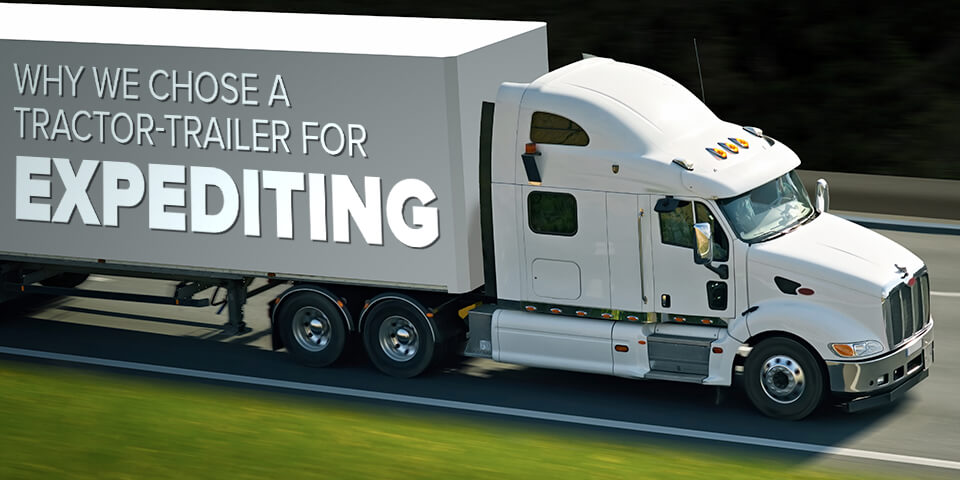In The News

Why We Chose a Tractor-Trailer for Expediting: Tom and Tina Evans
This article is the first installment of a three-part series to introduce you to each type of vehicle typically used for expediting. The next two articles in the series will address "Why I Chose a Straight Truck" and "Why I Chose a Cargo Van."
It’s common to see expediters get into the business with a smaller vehicle, like a straight truck or cargo van. And for veteran expediters Tom and Tina Evans, that’s how they got their start—with straight trucks.
They bought their first straight truck in 2002 to launch their business as expedite owner-operators. Then in 2013, they took the next step to become fleet owners.
But they did something different in 2018 that had never done before: They bought tractors. Two of them so far. Today they operate a fleet of seven vehicles, including the tractors, all leased to Load One.
So, why did they begin choosing a tractor for expediting?
1. Higher income potential.
Tom says that the while tractors may be more expensive to operate than straight trucks, “the revenue that they produce and the rates per-mile they command more than compensate for the little bit of extra cost.”
How much more do the tractors earn?
“They earn pretty close to double a week compared to what the straight trucks do. But they run about the same number of miles,” says Tom.
2. Expanded freight opportunities.
What type of expedite loads does a tractor haul that won’t go on a straight truck?
“Mostly what we're seeing is freight that may not be very heavy, but it's oversized stuff that these shippers still want to expedite that can't fit on a straight truck," says Tom.
What are some examples?
"I have seen home shipments from appliance providers where customers order matching sets of a whole host of appliances, such as a washer and dryer, refrigerator, stove, microwave, and they want them all the appliances shipped to one store as expedited freight," says Tom. "So the tractor comes in handy when the customer has larger quantities of stuff to ship all at once that just won't fit on a straight truck."
3. Flexibility to make money running solo.
“With the tractors, we’re able to pay for them with a solo driver because although they’re not running the miles [of a team-driven straight truck], they're still making extremely good money,” says Tom.
Tom explains the economics like this: “If you're shipping twice as much freight as would go on a straight truck, and they're paying ‘x’ rate for a straight truck, then they’ll typically pay ‘x’ rate doubled for the customer to ship twice as much.”
The Bottom Line
Tom’s assessment?
“I would highly suggest that [expediters] think about either adding a tractor to their fleet or replacing one of their straight trucks with a tractor and give it a try,” says Tom. “Our tractors have been very lucrative for us and have helped us grow our earning potential.”
